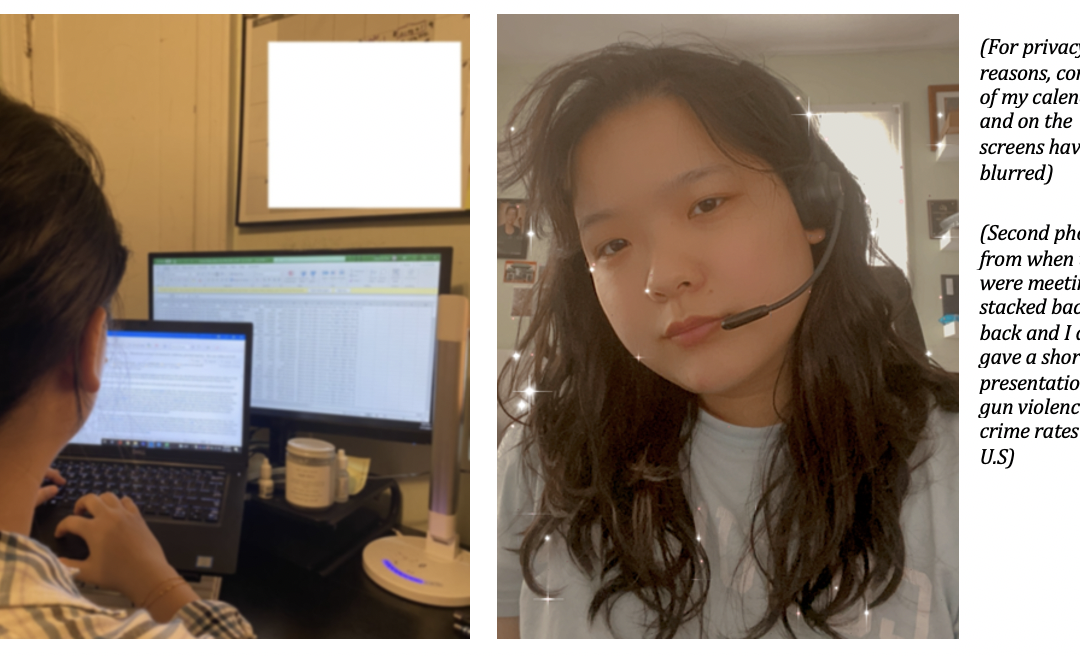If there is one thing that I have learned at all, it’s that advocacy takes shape in many different forms. With my previous experience working with a woman’s organization in person during the height of the pandemic, I’ve only ever known visible advocacy that either occurred with boots on the ground or the organizations and causes I followed on my social media.
My first week at Human Rights Watch was packed, to say the least. A large research organization with almost $200 million in assets, meant I was well equipped with a computer and contact persons to introduce me to the communications branch of HRW. Security was emphasized — after all some of the reports HRW releases omit certain reporters or victim’s names for wariness of persecution or a vengeful government. The gravity of my work was cut out for me — there were voices that needed to be heard and messages to be sent.
My initial couple of assignments were ones I found upon myself to do. HRW is also known for its plethora of diverse writers, who conduct research and collect quantitative data, before compiling it into various media products including but not limited to: amicus brief ( a persuasive legal document filed by a person or entity in a case and brings important facts and arguments to the court’s attention that may not have been previously addressed by the parties), background briefings, dispatch (official report on state or military affairs), news release, statement and opinion pieces. In the span of days, I felt my own writing capacity continuously stretching as I re-evaluated my own thoughts and style choices of grammar and punctuation, while still trying to preserve the original voice and intention of the writer. Some issues I felt very vocal about myself (such as women’s rights and violence against children) I often found myself pausing to comprehend the severity of the injustices, other issues I may have never known about or was culturally contrasting to my own knowledge and education I found equally fascinating, and leaned more into the structure of grammar, maintaining the intricate explanations of the topic the author originally wrote.
As I gradually settled in with have regular meetings with the communications branch and the branch that I am a part of, HRW USP (U.S Program), I was introduced more thoroughly to movements and behind the scenes of the press. My supervisor was wrapping up the Tulsa Massacre centennial and we came out of the recognition of Juneteenth as a federal holiday a bit dismayed that H.R. 40 (the congressional bill that would set up a committee to examine the legacy and harms of slavery and propose reparations) would probably take even more advocacy and work to have it be recognized. Quite literally, a momentous occasion such as the recognition of H.R. 40 should have rung all the celebratory bells which it has, but for many of the staff members who have worked tirelessly to push for H.R. 40’s support and passage in the past years, it caught many staff members off-guard that Juneteenth was established so quickly as a holiday, there wasn’t enough ammunition to push H.R. 40 together with Juneteenth. So far, I have done media press advisories, media compilations, draft social media posts surrounding the 4th of July celebrations, and I’m heading into training for media monitoring systems to prepare to draft for press releases (“pressers” as HRW calls them).
I can’t wait to see what’s in store for the remainder of the fellowship especially with HRW’s robust network with esteemed and passionate reporters for various topics I am interested in advocating for such as women’s and children’s rights, racial justice, and civil rights. I’m also very excited to be a part of HRW’s brown bag lunches and networking opportunities, where many senior researchers of the organization share their paths to advocacy and what led them to their current career working at HRW. The organization is known to uncover and report the truth – regardless of partisan or personal opinion, the truth must be discovered and known to the world. I am ready to advocate for the truth to be known to audiences worldwide.

